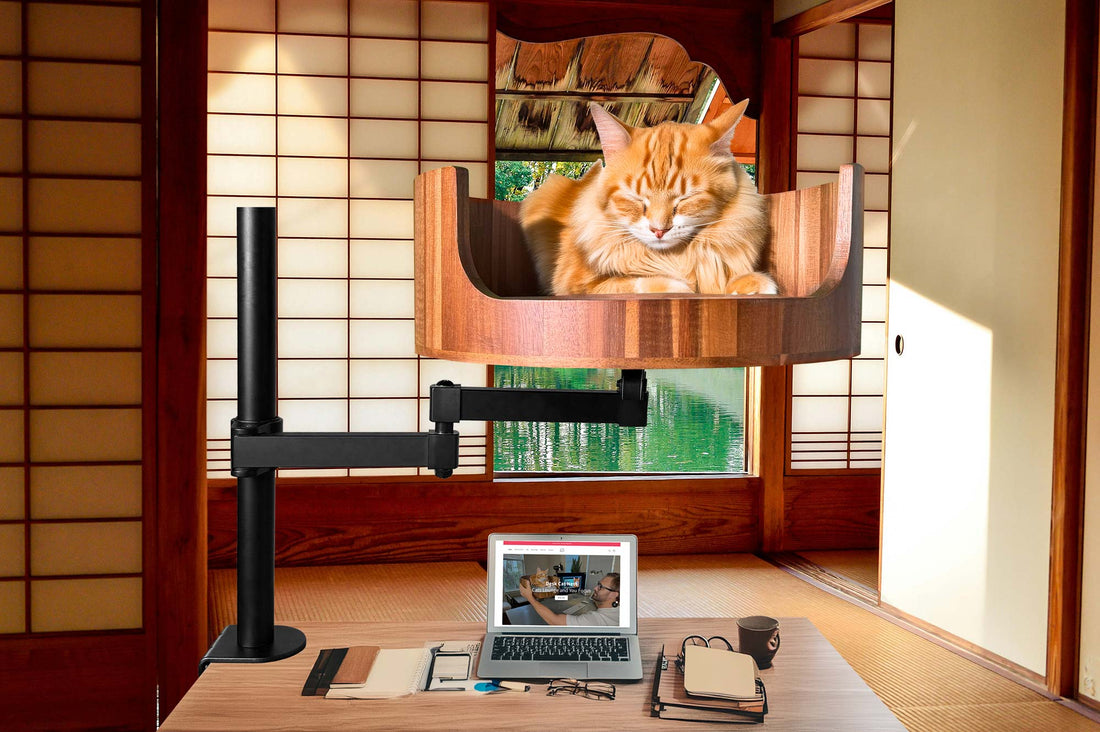
Will a Cat Eat a Mouse? Understanding Feline Behavior
Share
If you've ever owned a cat, you've likely witnessed their hunting instinct in action. Cats are natural-born predators, capable of catching and consuming small prey like mice. But will a domesticated cat actually eat a mouse if given the opportunity? In this article, we'll explore the fascinating world of feline behavior to better understand why cats hunt and whether or not they will eat their catch.
From the cute and cuddly housecat to the sleek and elusive wildcat, all felines share a common hunting instinct that drives them to stalk, pounce, and capture prey. While some cats may only engage in playful hunting behavior, others may go so far as to consume their catch. Understanding the reasons behind a cat's hunting and eating behaviors can provide valuable insights into their natural instincts and how to best care for our feline companions. So, let's delve into the world of cats and mice to uncover the mysteries of feline behavior.
1. Cats' natural hunting instincts drive them to chase and catch prey like mice, but not all cats will actually eat them.
2. Some cats may play with a mouse but not consume it due to being well-fed or domesticated.
3. The act of eating a mouse is not necessary for a cat's survival as they can get all their nutritional needs from commercial cat food.
4. Cats may view mice more as toys or sources of entertainment rather than food.
5. Understanding feline behavior, including their predatory instincts, can help cat owners provide enriching and stimulating environments for their pets.
Why do Cats Eat Mice?
Cats are natural predators, and hunting is an instinctual behavior that has been passed down through generations. While domestic cats may not need to hunt for survival, the desire to chase and catch prey still remains strong in many cats. Eating a mouse is a way for a cat to fulfill its natural hunting instincts and feel a sense of accomplishment.
Factors That Influence a Cat's Decision to Eat a Mouse
There are several factors that can influence whether or not a cat will eat a mouse. One factor is the cat's individual temperament and hunting drive. Some cats may be more aggressive hunters and more likely to eat their prey, while others may simply enjoy the thrill of the chase. The age and health of the cat can also play a role in whether or not it will eat a mouse. Older cats or those with dental issues may be less likely to eat prey.
Health Risks Associated with Cats Eating Mice
While it is natural for cats to hunt and eat mice, there are some risks associated with this behavior. Mice can carry diseases and parasites that can be transmitted to cats through consumption. Some common health risks include toxoplasmosis, which can be passed on to humans as well, as well as internal parasites like roundworms and tapeworms. It is important for cat owners to be aware of these risks and take preventative measures to protect their pets.
Strategies for Discouraging Cats from Eating Mice
If you have a cat that likes to hunt and eat mice, there are some strategies you can employ to discourage this behavior. One option is to provide your cat with plenty of interactive toys and playtime to satisfy its hunting instincts. Another strategy is to keep your cat indoors to prevent it from hunting wildlife. Additionally, feeding your cat a balanced diet can help reduce its desire to hunt for prey. If you have a mouse problem in your home, it is important to address the root cause and take steps to prevent mice from entering in the first place.
Frequently Asked Questions
Will a cat eat a mouse?
Yes, cats are natural hunters and often enjoy chasing and catching small prey like mice. It is a common behavior for cats to hunt and eat mice.
Is it safe for a cat to eat a mouse?
While it is natural for a cat to hunt and eat mice, there are some risks involved. Mice can carry diseases and parasites that can be harmful to your cat. It is important to monitor your cat's hunting behavior and consult with your veterinarian for advice on how to safely feed your cat.
Can a cat nest help prevent my cat from hunting mice?
While a cat nest can provide a cozy and secure space for your cat to rest and play, it may not completely prevent your cat from hunting mice. Cats have natural hunting instincts that may be difficult to suppress completely. However, providing your cat with engaging toys and interactive playtime can help redirect their hunting behavior.
In conclusion, providing your cat with a Desk Cat Bed is a valuable choice when considering whether or not your cat will eat a mouse. Not only does a comfortable and cozy bed offer a stress-free environment for your cat to relax and unwind, but it also encourages them to stay indoors and away from potentially harmful outdoor predators like mice. By investing in a Desk Cat Bed, you are not only providing your feline friend with a comfortable place to rest, but also contributing to their overall safety and well-being.


















































